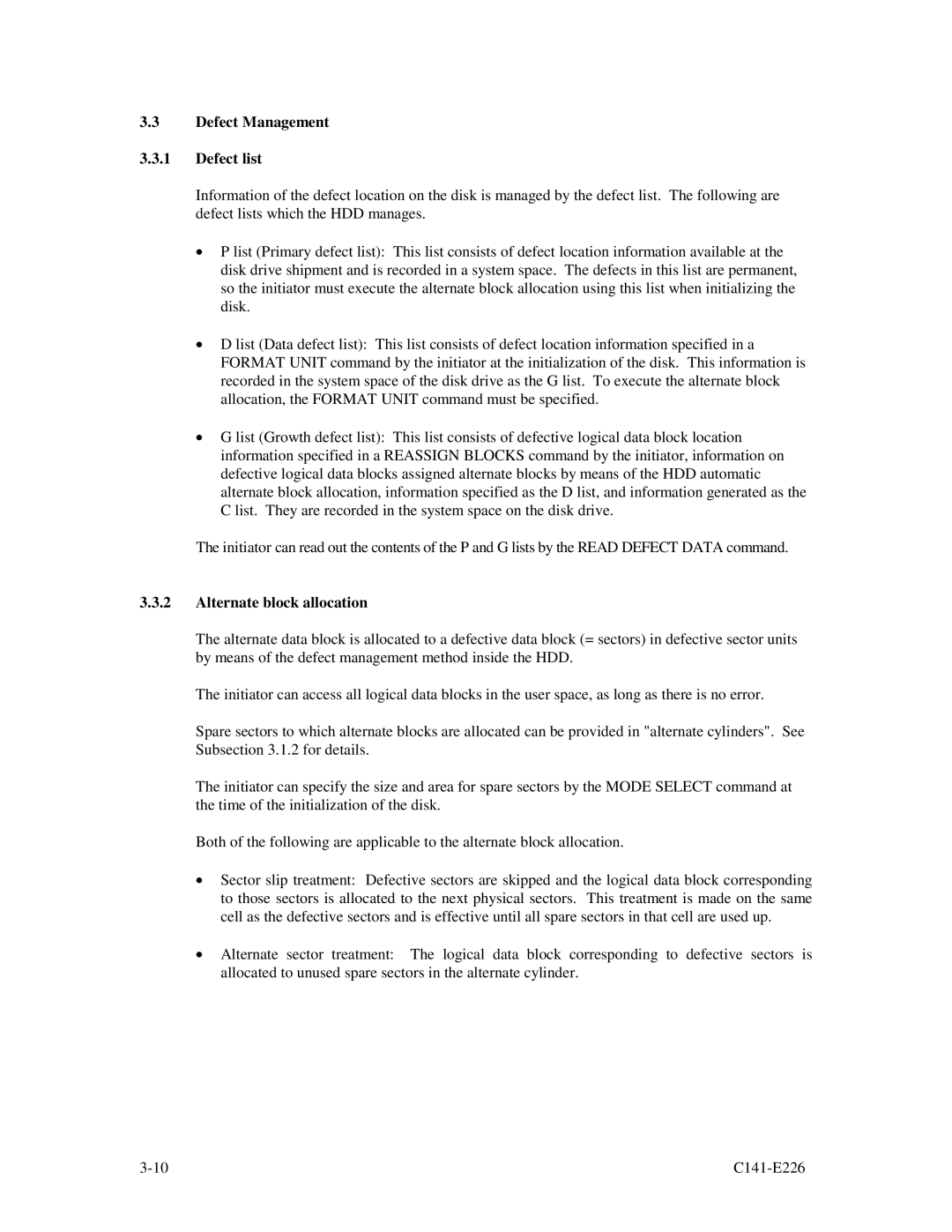MAW3147NC/NP, MAW3073NC/NP, MAW3300NC/NP specifications
Fujitsu has established itself as a key player in the world of hard disk drives, and their MAW3073NC/NP, MAW3300NC/NP, and MAW3147NC/NP models showcase exemplary engineering and innovative technology. These drives are designed primarily for enterprise applications, providing robust performance, reliability, and data integrity in demanding environments.One of the standout features of the Fujitsu MAW series is its high storage capacity. The MAW3073NC/NP model comes with a generous 73 GB capacity, while the MAW3300NC/NP boasts 300 GB, and the MAW3147NC/NP offers 147 GB of storage. This range makes them suitable for various applications, from databases to data-intensive software.
The drives utilize the latest Serial Attached SCSI (SAS) interface, which ensures high speed and efficiency in data transfer. SAS technology provides better bandwidth and performance compared to older parallel SCSI interfaces, enabling faster access to data and improved overall system responsiveness. With rotational speeds of 10,000 RPM, these drives further enhance performance, enabling faster read and write times, which is critical for enterprise applications that require quick data retrieval.
Another noteworthy characteristic of the Fujitsu MAW series is their advanced error recovery and data integrity features. The drives are equipped with sophisticated error correction mechanisms and management systems that help maintain data integrity, ensuring that the data remains intact even in the event of power loss or system failure. This reliability is paramount for enterprise environments where data loss can result in significant operational disruptions.
In terms of physical design, these drives are built to endure the rigors of high-demand environments. They feature a robust construction that allows for efficient heat dissipation, minimizing the risks associated with overheating. Additionally, their form factor is designed for easy integration into various server and storage systems, making them versatile solutions for IT infrastructure.
Fujitsu's commitment to sustainability is also evident in the MAW series with their energy-efficient operation and reduced power consumption, contributing to decreased overall operational costs. With a combination of high performance, reliability, and sustainability, the Fujitsu MAW3073NC/NP, MAW3300NC/NP, and MAW3147NC/NP hard drives stand out as formidable choices for organizations looking to optimize their data storage solutions. They embody the cutting-edge technology and quality that Fujitsu is known for in the enterprise storage market.
